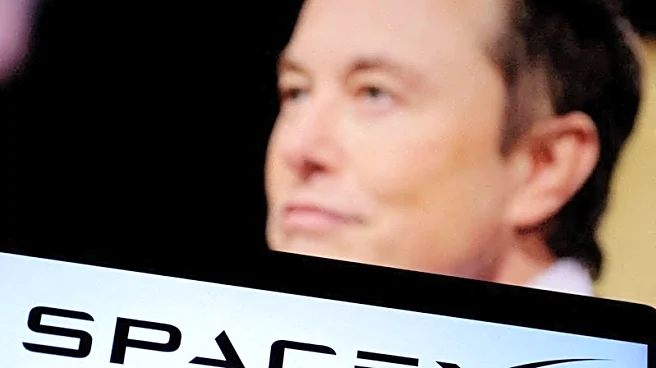Rapid Read • 8 min read
Health Secretary Robert F. Kennedy Jr. has announced the cancellation of $500 million in funding for mRNA vaccine development in the United States. This decision affects 22 projects led by major pharmaceutical companies, including Pfizer and Moderna, aimed at developing vaccines for respiratory viruses such as bird flu and Covid-19. Kennedy, known for his skepticism towards vaccines, cited concerns that mRNA technology poses more risks than benefits for these viruses. The U.S. Department of Health and Human Services (HHS) confirmed the funding cut, which shifts focus to vaccine platforms deemed safer and broader. Critics, including former FDA official Peter Lurie, argue that mRNA vaccines were crucial in combating the Covid-19 pandemic and that the decision undermines a promising tool for future pandemics.
AD
The cancellation of mRNA vaccine funding by RFK Jr. could have significant implications for public health policy and the pharmaceutical industry in the U.S. mRNA vaccines have been pivotal in reducing the impact of Covid-19, and their rapid development cycle is considered essential for responding to emerging health threats. The decision may hinder the country's ability to quickly address future pandemics, potentially leaving the U.S. in a vulnerable position. Pharmaceutical companies like Pfizer and Moderna, which have invested heavily in mRNA technology, may face setbacks in their research and development efforts. The move also reflects a shift in health policy under Kennedy's leadership, emphasizing vaccine platforms with perceived stronger safety records.
The U.S. Department of Health and Human Services plans to redirect funding towards vaccine platforms with more established safety profiles and transparent clinical data practices. This shift may lead to changes in how vaccines are developed and regulated in the U.S., impacting future public health strategies. The Biomedical Advanced Research and Development Authority (BARDA) will oversee the transition, focusing on alternative vaccine technologies. The decision may prompt reactions from health experts, pharmaceutical companies, and public health advocates, who could push for reconsideration of mRNA technology's role in pandemic preparedness.
The cancellation of mRNA vaccine funding raises broader questions about the balance between innovation and safety in vaccine development. It highlights the ongoing debate over vaccine efficacy and the role of government in regulating health technologies. The decision may influence public perception of vaccines and contribute to vaccine hesitancy, a significant public health challenge. Additionally, it underscores the impact of political leadership on scientific research and public health policy, potentially affecting international collaborations in vaccine development.
AD
More Stories You Might Enjoy











